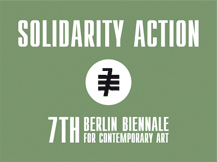Over the last eight years the Roman contemporary art landscape has changed radically. Not just with two new museums, but also with the start of different independent (often self-financed) initiatives, and the transformation of private collections into foundations, creating a dense network of relationships. Nevertheless, precisely in this period, cultural work has become underpaid, temporary, unsustainable. Why? One symptom can be seen in the standardization of cultural discourse. Not just the formats (seminars, encounters with artists, screenings, exhibitions), but also the contents discussed in private, independent or public spaces are often the same. Three different platforms that should produce different, maybe even contrasting forms of cultural discourse, are instead lumped into an alarming consensus. In Rome one often sees directors of curators of public museums invited to discuss the meaning of independent initiatives; or activists and operators from the independent scene who are asked to direct foundations. This confusion of roles leads to the figure of the know-it-all, the tuttologo 1. The fragile, temporary nature of cultural employment reinforces this figure, which on the one hand erases divisions of cultural labor, while on the other it forgets the importance of the separate expertise of each role. Pointing out the shortcomings of the know-it-all is a fundamental step to (re)learn what we know how to do. It would be of benefit not only to artists of both sexes, but also to the fragile and aestheticizing collecting that has developed as a reflection of Berlusconism. Rather than waxing nostalgic over an old system of financing and production, I think it would be better to start experimenting. I do not agree with the creation of commissions parallel to those that already exist. We need to understand who knows how to do what. Instead of further bureaucratizing of cultural production, we need to make it more flexible. This could start with the two contemporary art museums whose enormous spaces are often empty. The use of space is already a form of maintenance: to make institutional spaces available to artists and curators in exchange for electricity, concierge service and a press office is a way to lighten up operating costs. This could be a first step towards understanding the differences between public, private and independent interests and, hopefully, towards starting a true dialogue based on dissent.
FRANCESCO VENTRELLA Art historian, independent curator and teaching assistant at the University of Leeds (Great Britain).
Co-founder of 1:1 projects, Rome.
1 – The tuttologo is not simply a tuttesalle, but the main actor of a conservative, elitist culture. This know-it-all thinks that everything he knows about corresponds to what he can get his eyes or his hands on before somebody else. It is in this sense that the question of know-it-all-ism is linked to what can be said about what we see.


